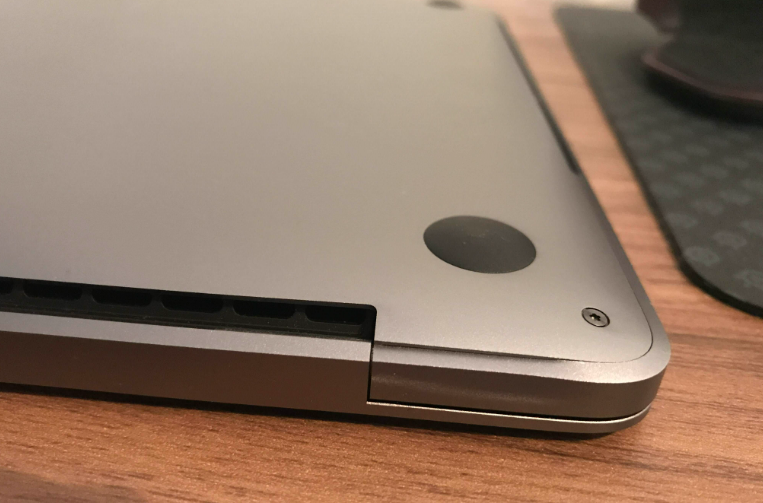
Laptop insurance, as the name suggests, offers additional coverage specifically tailored for laptop computers. By paying a monthly or annual premium, you ensure your laptop is protected against potential risks such as theft, loss, or damage. In case of any mishap, the insurance provider will cover the costs to repair or replace your laptop.
Although many insurance companies offer standalone laptop coverage, computers are often included in homeowner’s or renter’s insurance policies. These policies typically provide coverage for the replacement value of household contents, including computers. Most insurance plans extend coverage to replace a laptop damaged by fire, water, or natural disasters. However, purchasing separate laptop insurance extends protection to your device when it’s taken outside the home.
It’s crucial to differentiate laptop insurance from extended warranties often offered by major retailers. These warranties are rarely cost-effective, so it’s important not to confuse the two.
Do You Need Laptop Insurance?

Laptops can indeed come with a hefty price tag, ranging from a modest $500 for basic models to several thousand dollars for prestigious brands boasting high-end specifications. If you opt for a gaming laptop with a pricey video card, the value could easily soar to $3000 or more.
Given the significant investment, insurance coverage for laptops can offer valuable peace of mind. For many people, laptops rank among their most expensive possessions after their house and car. They are integral to daily life, particularly for self-employed individuals and students who rely on them for productivity and income. With the rise of remote work during the pandemic, laptops have become even more essential. Moreover, they are prime targets for theft, making laptop insurance a potentially lifesaving safeguard.
However, not all insurance plans are equal, and it’s crucial to choose one carefully. Assessing what is covered and what isn’t under the policy is essential, considering that many plans have policy limits and exclusions. For instance, does the coverage extend to theft from a car or damage caused by a pet knocking the laptop off a table? Understanding the specifics of your coverage is paramount. As always, it’s wise to explore different laptop insurance options and compare them before making a decision.
What To Look For in Laptop Insurance

When considering laptop insurance plans, prioritize companies with consistently high customer satisfaction ratings. Take the time to review various online reviews and comments to ensure you select an insurer with strong overall rankings. Look for a policy that offers comprehensive coverage for a wide range of perils, including theft, vandalism, power surges, cracked screens, natural disasters, and liquid spills.
Ensure that the policy is available nationwide and covers all laptop models, both new and used. Some insurers may restrict coverage to specific makes and models or exclude computers older than three years. Don’t hesitate to reach out to the insurer’s customer service department for clarification, either by phone or live chat. Directly asking about coverage details is the most effective way to understand what is and isn’t included in the policy.
Keep in mind that premiums must be paid monthly, and the cost can vary based on factors such as the insurance company, policy type, laptop value, and location. The policy term and coverage amount will also influence the cost. Like many insurance policies, laptop insurance often includes a deductible, typically around $100, which you’ll need to pay out of pocket for repairs or replacements.
Most of this information should be readily available on the insurer’s website. If it’s not easily accessible, consider it a potential red flag.
What To Avoid in Laptop Insurance

When selecting laptop insurance, it’s crucial to be cautious about potential pitfalls. One major concern is ending up with an insurer who gladly collects your monthly premiums but hesitates to fulfill their obligations in the event of a claim. Dealing with such a situation after your laptop has been stolen or damaged can be both frustrating and costly. To mitigate this risk, carefully review the terms and conditions of any insurance policy you’re considering. Pay close attention to exclusions and any clauses that could allow the insurer to avoid paying out on a claim.
Be wary of policies that increase premiums or deductible amounts as the laptop ages. This practice may seem counterintuitive, as laptops typically depreciate over time due to advancements in technology. It’s generally not worthwhile to insure an older laptop, as you may end up paying more in premiums than the laptop is worth. In such cases, it may be more prudent to set aside the premium payments in savings and use them to purchase a new laptop when needed.
What Laptop Insurance Costs
Laptop insurance usually falls within the range of $20 to $40 per month, with an average deductible of approximately $100 per claim. If you encounter a policy priced significantly higher than these averages, it’s wise to approach with caution. Keep in mind that the cost of insurance may vary depending on the value of your laptop. For instance, insuring a high-end device like a brand new Macbook Pro or Alienware gaming laptop will likely be more expensive compared to insuring a $500 Chromebook. Just like with any insurance purchase, it’s advisable to compare quotes from different providers to find the most suitable option for your needs and budget.
A Note About Warranties

It’s important to note that most computers come with a standard manufacturer’s warranty, typically covering hardware and software issues for the first year. While these warranties don’t extend to theft, fire, or accidental damage, they do provide coverage for many common repairs. This means you may not need laptop insurance until your manufacturer’s warranty expires. Additionally, if you purchased your laptop using a credit card, you might receive an extra year of warranty as a cardholder perk. Be sure to review the terms of your credit card agreement to confirm.
As mentioned earlier, your homeowner’s insurance policy will generally protect your laptop in the event of a major disaster at your home. However, if you frequently travel with your laptop for meetings, classes, or remote work from various locations such as coffee shops, it may be worth considering additional laptop insurance. This extra coverage can provide financial protection if your valuable device is damaged or goes missing while you’re on the go.
In Conclusion
The decision on whether to invest in laptop insurance boils down to a single question: Can you handle the financial burden of replacing or repairing your laptop if it’s lost, stolen, damaged, or rendered unusable? If the answer is no, securing an insurance policy can offer a cost-effective means of safeguarding the investment you’ve made in your computer.
For individuals who rely heavily on their laptop for work as self-employed professionals or full-time students, the necessity of having a functional computer is paramount. Ultimately, it’s essential to explore options from reputable insurance providers that offer diverse policies and coverage tailored to your specific needs. Remember, being well-informed empowers you to secure the necessary laptop insurance without overspending.
